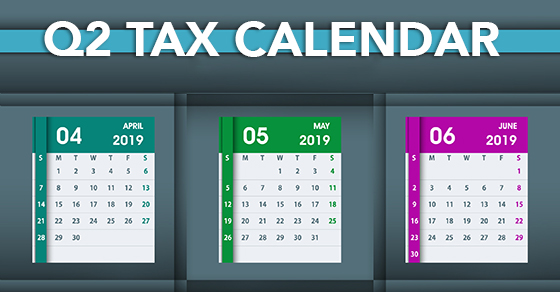Recent News
11/15/2024
The amount you and your employees can save for retirement is going up slightly in 2025
How much can you and your employees contribute to your 401(k)s or other retirement plans next year? In Notice 2024-80, the IRS recently announced cost-of-living adjustments that apply to the dollar limitations for retirement plans, as well as other qualified plans, for 2025. With inflation easing, the amounts aren’t increasing as much as in recent years. 401(k) plans The 2025 contribution limit for employees who participate in 401(k) plans will increase to $23,500 (up from $23,000 in 2024). This contribution amount also applies to 403(b) plans, most 457 plans and the federal government’s Thrift Savings Plan. The catch-up contribution limit...

Stay up to date! Subscribe to our future blog posts!
03/25/2019
2019 Q2 tax calendar: Key deadlines for businesses and other employers
Here are some of the key tax-related deadlines that apply to businesses and other employers during the second quarter of 2019. Keep in mind that this list isn’t all-inclusive, so there may be additional deadlines that apply to you. Contact us to ensure you’re meeting all applicable deadlines and to learn more about the filing requirements. April 1 File with the IRS if you’re an employer that will electronically file 2018 Form 1097, Form 1098, Form 1099 (other than those with an earlier deadline) and/or Form W-2G. If your employees receive tips and you file electronically, file Form 8027. If...
